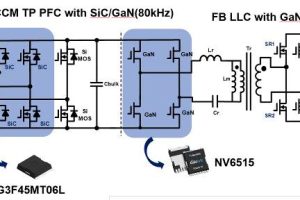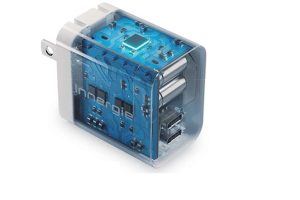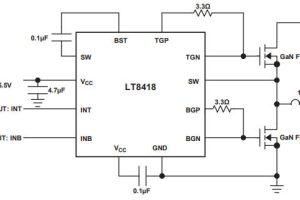
The choice of a TOLL reduces the size compared to a QFN, explained Stephen Oliver, Navitas Semiconductor’s vp of corporate marketing and investor relations. “It runs cooler than a QFN and has fused pins for thermal capability, with keys on the pins for mechanical robustness,” he explained.
The power ICs integrate GaN power and drive, with control, sensing and protection. The new parts are also believed to be the first in the industry to be covered by a 20-year warranty.
The initial 650/800V exceeds conventional voltage protection, added Oliver. The initial GaNSafe offering covers 35mΩ-98mΩ and addresses 1,000W-22,000W.
For operation at high temperatures and long duration conditions, such as solar inverters, which are on rooftops for 20 years or more, the ICs integrate regulated gate drive control with zero gate source loop inductance for high speed (2MHz) switching to maximise application power density. There is also high speed short circuit protection, with autonomous ‘detect and protect’ within 50ns, which is four to five times faster than using separate discrete devices, said Oliver.
There is also electrostatic discharge (ESD) protection of 2kV, compared to zero for discrete GaN transistors.
The TOLL package has just four pins and programmable turn-on and turn-off speeds (dV/dt) to simplify EMI regulatory requirements. Programming is via selected resistors and diodes, connected in series with the drive pin. The package is certified to PC-9701 mechanical reliability standard. AEC testing is currently underway with results expected mid-2024.
GaNSafe is available immediately to qualified customers. Mass production is expected to begin early Q4 2023.
Reference designs, with EMI testing, thermal and efficiency for data centres and EV on-board chargers are also available.
Following sampling to selected customers, Navitas has announced that Chinese car manufacturer, Geely, which has a controlling stake in Lotus and a minority stake in Daimler, will produce EVs using GaNSafe from 2025.
 Electronics Weekly Electronics Design & Components Tech News
Electronics Weekly Electronics Design & Components Tech News



